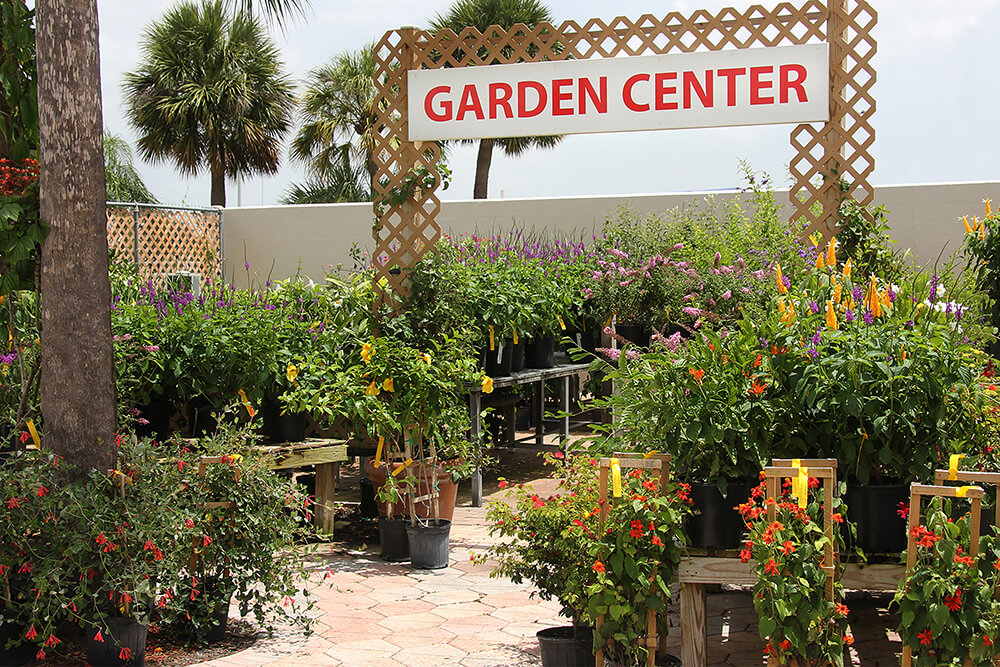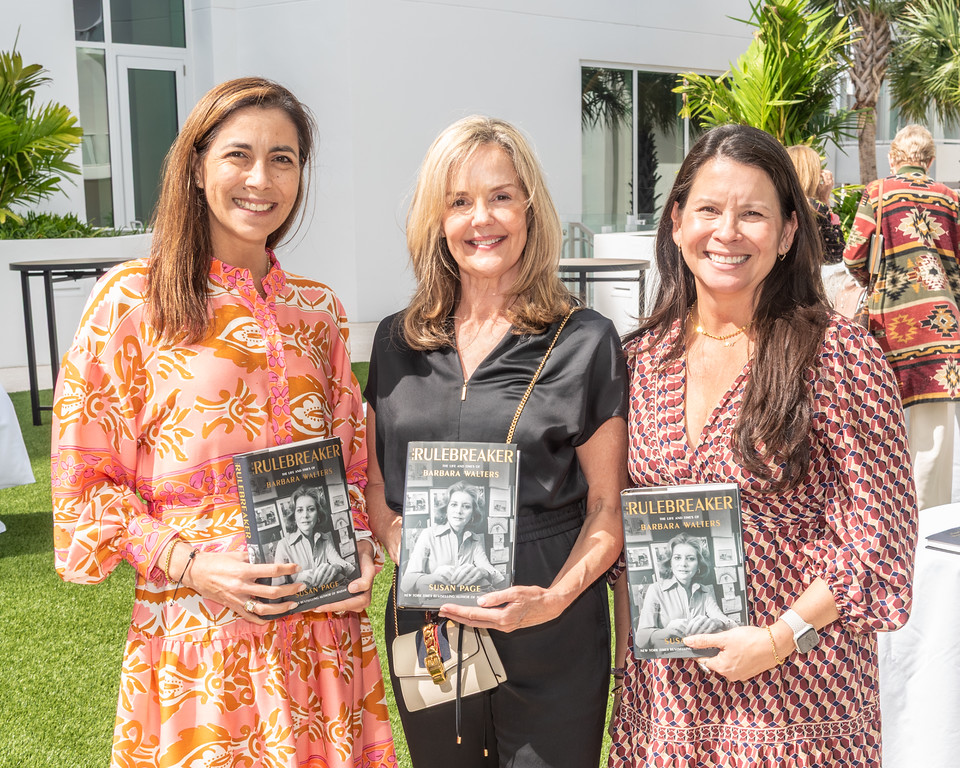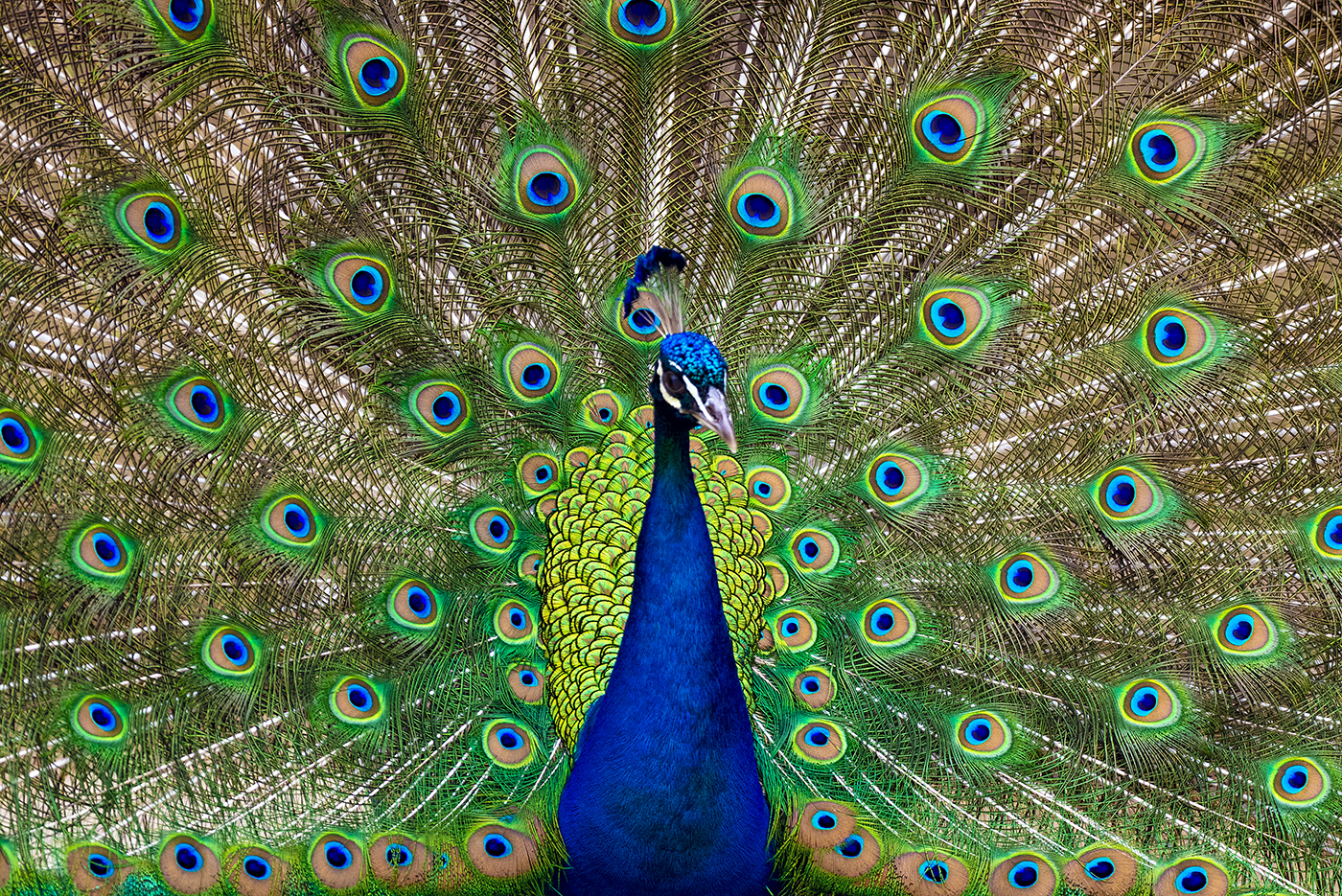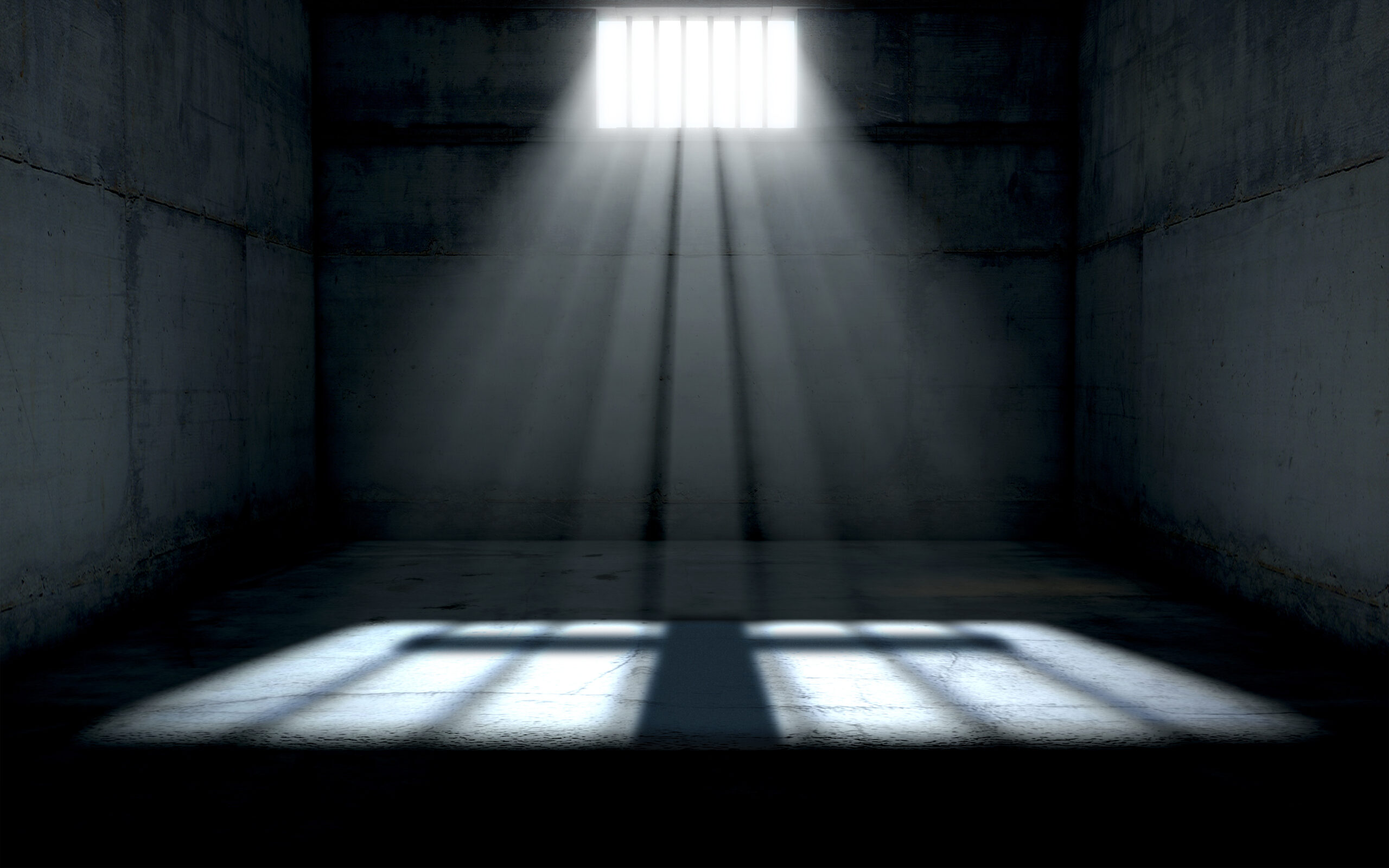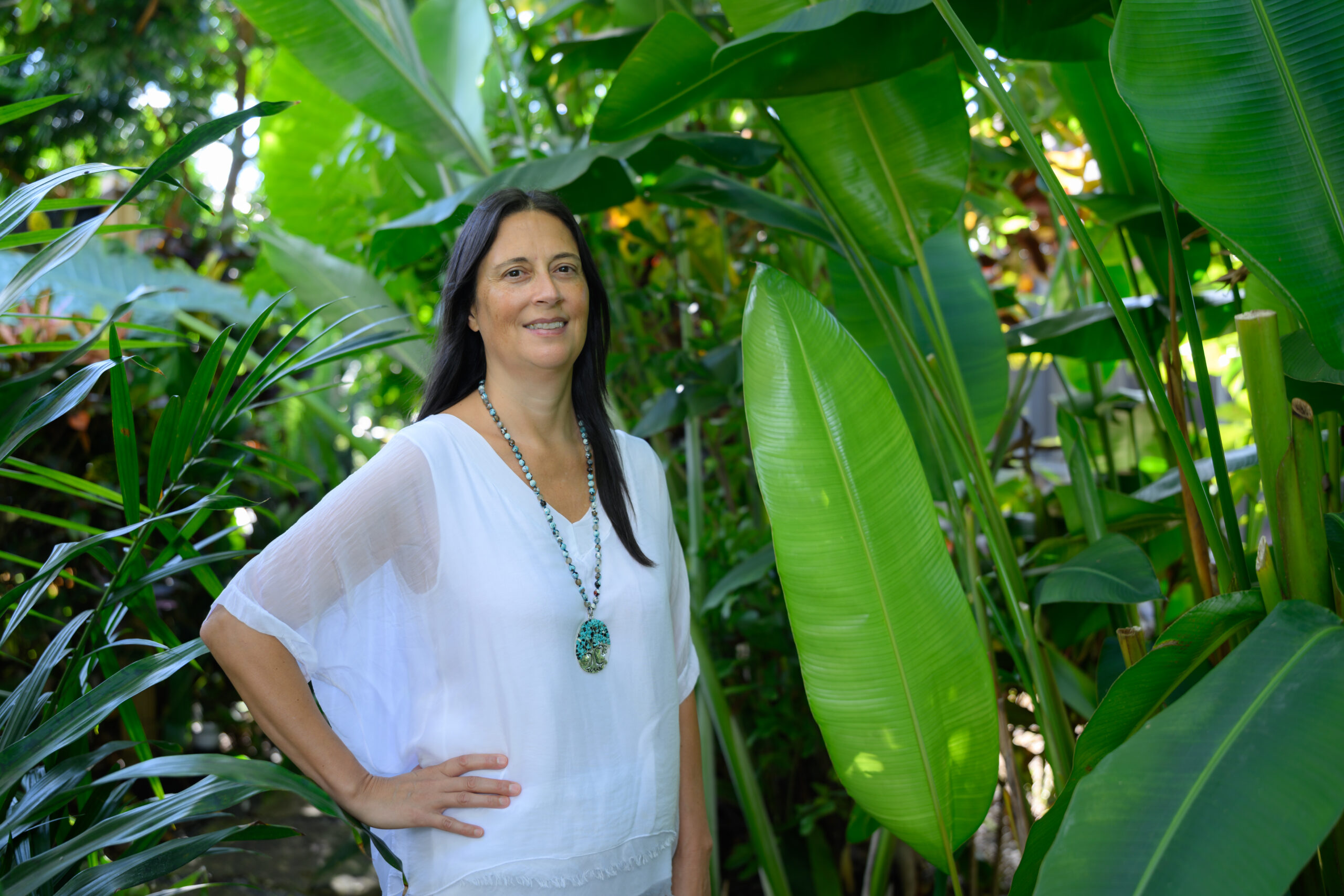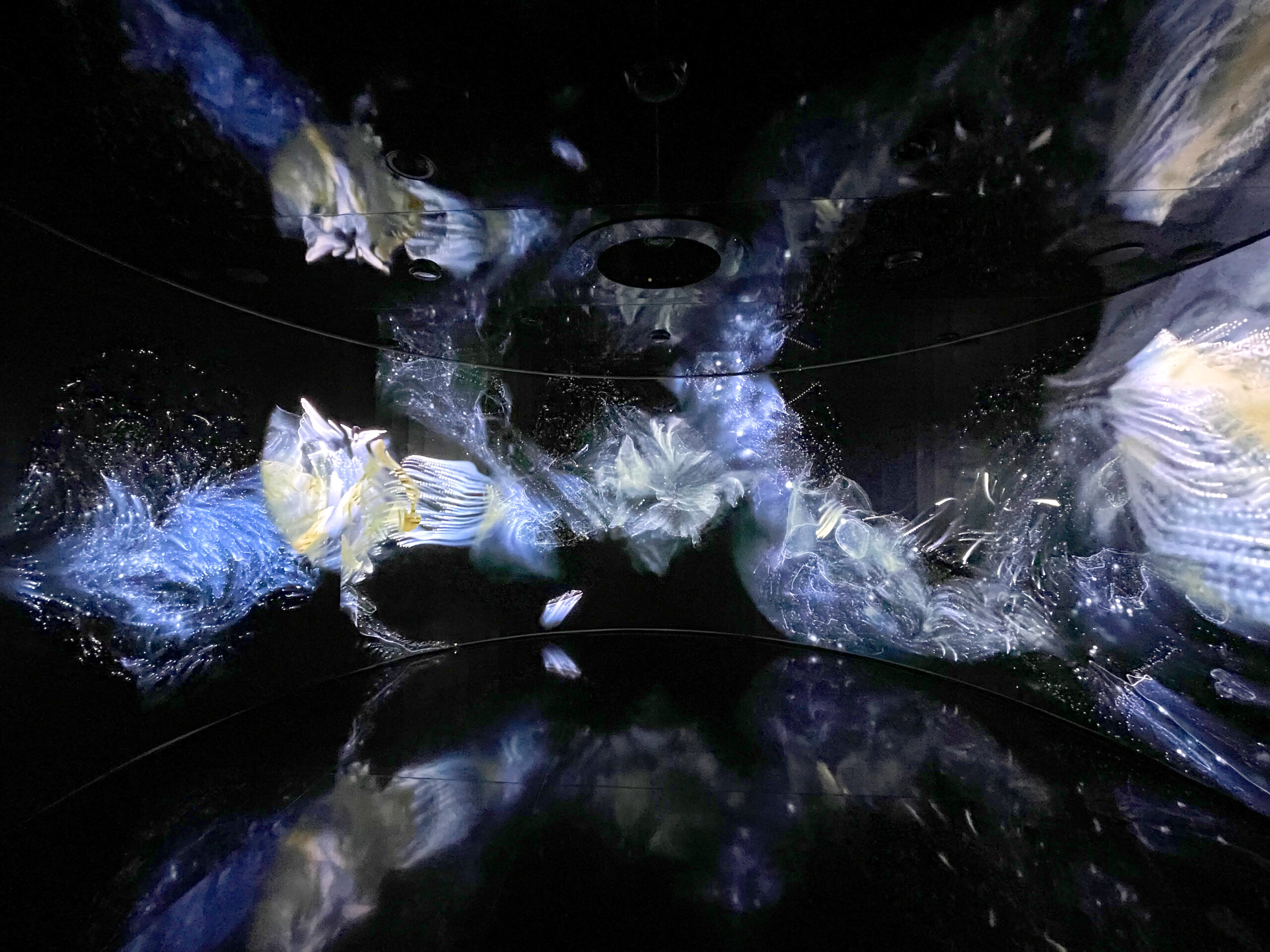Butterfly World has had a steady stream of visitors for the past 30 years, including as many as 15 school groups a day. Twelve guides provide hour-long tours, showcasing different species and their life cycles, and teaching people how to create inviting butterfly environments in their own backyards.
Butterfly World employee Natalie Carbonell inspires visitors to create these habitats the same way she was inspired. Her interest began when she started butterfly gardening as a hobby after graduating from college. She attended one of the butterfly gardening workshops at Butterfly World and discovered a deeper passion.
“At the time, there was somebody else teaching it,” she recalls, “and I looked at that girl, [and] I was like, ‘I want to be that girl.’ ”
Today, she leads tours for elementary school groups, staffs the gift shop or flight area, and tends to the Garden Center, which is free to visit and open to the public and home to the region’s largest collection of butterfly-specific plants. Carbonell also says she loves teaching butterfly gardening workshops.

During these workshops, Carbonell discusses which plants attract butterflies and provide the proper conditions for each stage of their life cycle. Though the workshop focuses on South Florida, she says the concepts apply regardless of geographic location.
Coconut Creek Lifestyle asked her for a few tips for beginner butterfly gardeners.
- “The key word is host plants,” Carbonell says. “That’s the one plant where the female will lay her eggs on, and that is the only plant that her larvae, her caterpillars, her babies will eat, and they need that plant to survive.”
- Carbonell also notes that a nectar plant is necessary; it’s what adult butterflies feed from while the larvae and caterpillars feed from the host plants. With monarch butterflies, for example, milkweed is a host plant and pentas act as a nectar plant.
- Sun also is essential. Butterflies are ectotherms, meaning they need the sun to regulate their body temperature. Planting both host and nectar plants in sunny spots will ensure butterflies will see them as an ideal environment.
- “You can’t spray your plants [with] pesticides, or you won’t get your butterflies,” Carbonell says. Because attracting butterflies is the main objective, and caterpillars are not pests, their plants should be free of the pesticide sprays that act as a deterrent.
The Garden Center offers a variety of host and nectar plants for sale. Hours are 9 a.m.-5 p.m., Monday through Saturday; and 11 a.m.-5 p.m. Sunday. For information, call 954.977.4434 or visit butterflyworld.com. Butterfly World is located at 3600 W. Sample Road.

Upcoming Events
Butterfly gardening workshops are held the second Saturday of each month at 1 p.m. Workshop is free with general admission, no reservations required. The next dates are May 19 and June 9.
Butterfly World also celebrates Mother’s Day with special $10 admission for all moms May 12-13.



